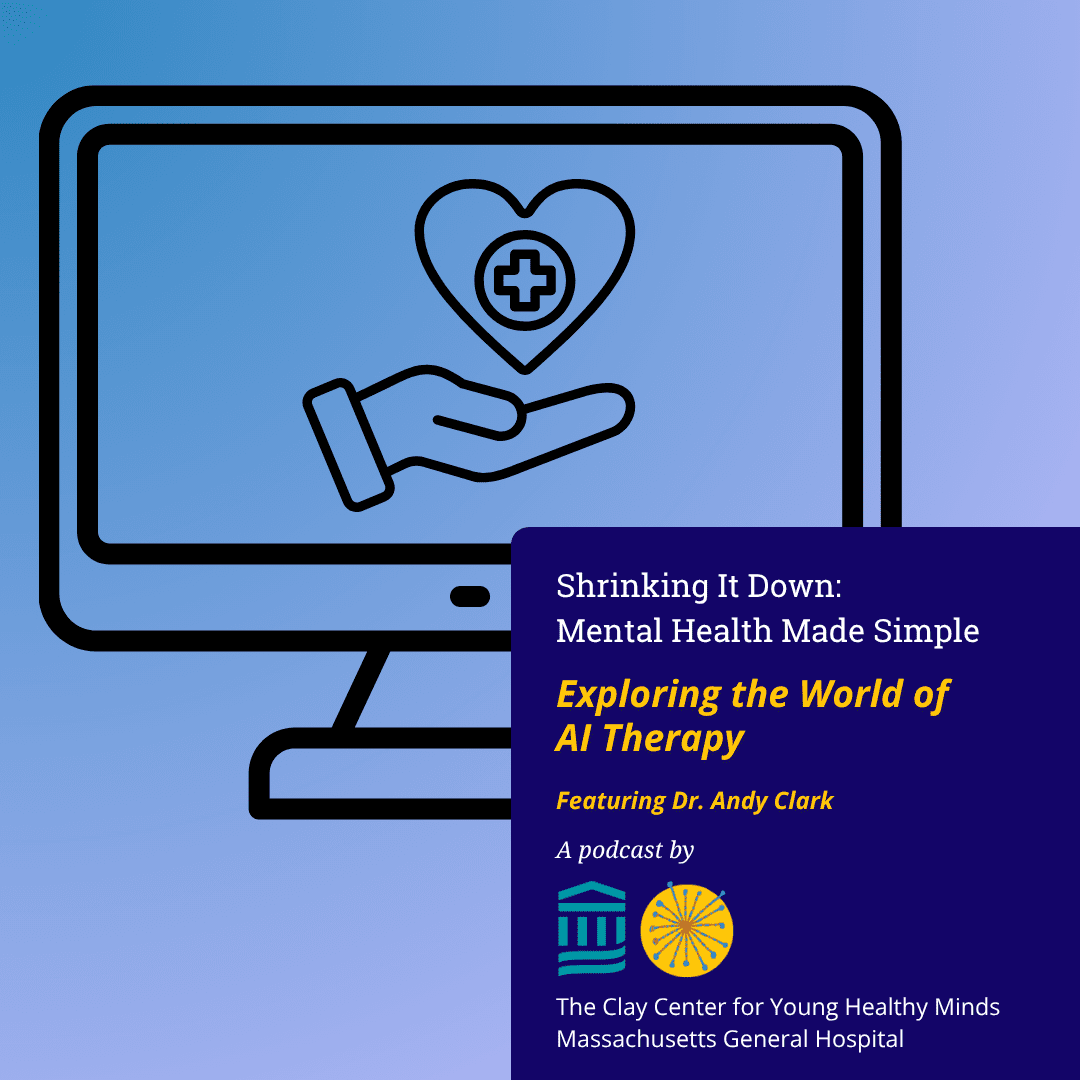A Letter to Those Struggling: Surviving a Severe Eating Disorder

Posted in: Teenagers
Topics: Hot Topics, Mental Illness + Psychiatric Disorders
Note: The following person’s account of his/her personal experience has been published with his/her consent to support the mission of The Clay Center for Young Healthy Minds, and let others in similar situations not feel so alone.
Introduction
Gene Beresin, MD, MA
For many years, I cared for Kathleen who had perhaps the most severe eating disorder I have ever encountered in my 40 years of clinical practice. Kathleen, 5 foot 7 inches tall, at one point weighed 69 pounds with significant chemical imbalance. I spent many a sleepless night worrying about her survival. Her narrative is both profound and an inspiration to me. I am not quite sure what among many twists and turns in her therapy made the difference, but I can say this: we began with her being quite adversarial (to say the least) and resistant. Over many years, though, through many trips to the emergency department and hospitalizations, we came to know each other well, developed quite a fond relationship, and used humor, honesty, respect, and trust. In my view I am quite sure we understood each other and felt seen. And even after treatment, Kath and I stayed in touch. I treasure our relationship and have the deepest admiration for her resilience. Here is her story:
***
On Christmas Day, 1984, my father suffered a sudden, fatal heart attack an hour prior to family and friends gathering for dinner at our house. The phone calls made to them before they arrived were met with shock and incredible sadness. For me, as a freshman in high school, my world changed in an instant. I spent the next eight years in and out of the hospital for anorexia nervosa and bulimia. This was a dark period of my life, but looking back, only one chapter.
I am at a place now where I am ready to share my journey and what helped me move beyond that dark period to a place of contentment and sheer joy.
I spent years in therapy with Dr. Gene Beresin and believe me when I say that it paid off. Full disclosure, it did not start out all rainbows and unicorns. More like dungeons and dragons. (He will chime in here, I am sure.)
I was a teenager. I was mad at the world and ticked off that I was in the hospital. Beginning on the pediatric unit at Massachusetts General Hospital, I was in denial there was anything wrong. More than once Dr. Beresin sat outside the curtain I had pulled around my hospital bed, and sat there for an hour with me refusing to speak to him. It took time and patience on his part. A LOT of patience! Over the course of multiple psychiatric admissions, as I participated in group therapy in the hospital, I started to recognize the benefits of the process and began to embrace it. I found it was nice, and quite a relief, to have a safe place with no judgement and no external agendas that came from family and friends. Just a sounding board for me.
While in the hospital, among other young girls with the same ailment, I also learned a lot about my actual disease. And it is a disease. Once your body gets to a certain level of weight loss, the chemistry in your body changes and this clearly affects your brain. These changes lead to distorted thoughts about body image and self-esteem to a larger degree than that of a normal teenage girl. There’s no denying that all teen girls have issues and concerns about their bodies. But in the case of an eating disorder like mine, I refer to these thoughts “as lies of the mind.” The disease takes over. You become a hostage of a deceptive mind that perpetually convinces you to believe these thoughts. The disease is not for you – it is against you. It’s like being possessed.
I recall other girls in the hospital with me saying the disease was their “friend.” It was the one thing that was theirs and theirs alone. I think mostly that without a firm understanding of who you are, you often believe that you are the illness – that it is your primary identity. I am here to tell you, this just isn’t true. It is simply another lie of the mind. What is it that made these girls feel they had nothing special in themselves? I don’t know for sure, but I do know all of these questions are at the core of therapy.
You can beat the disease. You can stop listening to the lies. Is it easy? Quite simply, no. But is it possible? Most definitely, yes!
It takes time to recover – to reclaim yourself. It takes refeeding the body, therapy, and medication for starters. It takes time learning to retrain your thought processes. But these become easier as the body grows healthier and out of danger. The medicine begins to take effect and the therapy starts to dig into the real issues that lie behind the eating disorder.
Once you start moving forward, you need to find outlets for yourself. For years I tried college classes and had to keep taking time off. I just wasn’t ready. I was a perfectionist in high school and had to get all A’s. In retrospect, I believe that this perfection in school was also in part wrapped in my illness. Recognizing this let me be okay with not being ready to return to classes. This is a huge point to take to heart. It is okay to not be ready! Give yourself permission to take your time.
Not going back to college was okay, but I had to face up to the fact I needed to do something productive, get a job, find some way to move forward. My Mom, my greatest advocate, said to me, “Look, I cannot do more for you at this point. It’s time for you to fly so pick something. I will support whatever it is, but choose something.”
For me it began with theater. Others found it in writing, painting, and sports. Whether it was a sign from above or just a random occurrence… I received a flyer in the mail for an acting studio summer course. I always wanted to act so I enrolled in the program. This was a huge risk for me but a necessary one. The first day I was scared – well more accurately, petrified. I told myself, “Nope, not going back.” But I made a commitment to myself to see it through. Thank God I did.
Sometimes I say the theater saved my life. Through the program I was able to explore feelings in a new way, under the guise of other characters with their stories. Another great outcome of this program was that I met my two closest friends in the world, who 28 years later remain in my life. I managed to get into college for theater and finally finished my undergraduate degree. I even moved across the country for school with one of those besties to do so and lived on my own for the first time.
Even though I did not pursue a career in acting, it was a great hobby and I continue to include writing, singing, dancing, skiing, and running in my life. I learned all these things through school and friends. I have even run half marathons. All of these activities brought me greater confidence, more friends, and increased overall happiness.
Another thing I did intentionally was to stop reading fashion magazines. Today that is a bit more challenging, with social media. But listen, back then, just as now, nobody looks as good as cover models or actors. Would we all love a world where we could be air-brushed through life? Well yes, I imagine at some level we would, but that is not reality. Barbie is not reality, even if it was a fun movie, so let that idea go!
The other important thing I have is faith. Everyone has their own faith and mine has guided me, comforted me, helped me persevere and given me strength. I was able to obtain a graduate degree in business, have a lucrative career, and meet my husband of now 11 years. I am early retired and enjoying life in the outdoors. I pray daily, and it has helped me deal with the pains of life. There will always be pains in life. My misfortune has included multiple significant dental repairs resulting from my eating disorder, loss of family members, and my husband experiencing a serious illness, but faith gets me through.
My general advice for those with eating disorders is this:
If one strategy is not working, shift gears and use another, or use a combination. Just don’t stop moving forward. Never lose sight of the goal – overcoming your illness, determining what’s underneath, who you really are, and what you need in your life for your health and wellbeing.
Obstacles are what you see when you take your eyes off the goal. Face them, anything worth doing comes with a price. And keep in mind that overcoming an eating disorder often takes a very long time. But perseverance breeds success! Envision that success and move forward with all the things at your disposal.
I hope this helps you. I do not know you, but I know your struggle. So, when you feel like you are at your wits end, know I am out here cheering you on even if you cannot cheer yourself on. I am proof that life does get better, and I wish that for you.
Best, Kathleen


 Share
Share Tweet
Tweet





